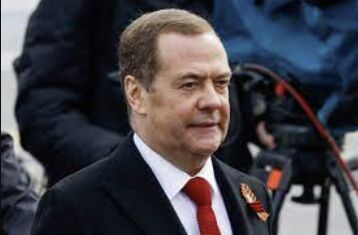Medvedev Issues Chilling Nuclear Warning Over Ukraine Conflict
In a chilling warning, a top ally of President Putin, Dmitry Medvedev, has stated that Ukrainian attacks with US-supplied arms could prompt a nuclear response from Russia. Tensions continue to rise.
A chilling warning has been issued by a top ally of President Vladimir Putin, Dmitry Medvedev, who serves as the deputy chairman of Russia's Security Council. According to Medvedev, Ukrainian attacks on missile launch sites inside Russia with arms supplied by the United States and its allies could result in a nuclear response from Moscow. While he did not provide specific details or name the Ukrainian military commanders allegedly considering such attacks, Medvedev referenced paragraph nineteen of Russia's 2020 nuclear doctrine.
This paragraph outlines the conditions under which a Russian president would consider using a nuclear weapon, including as a response to an attack using nuclear or other weapons of mass destruction, or to the use of conventional weapons against Russia when the very existence of the state is put under threat. Medvedev's alarming statements shed light on the hawkish thinking at the top of the Kremlin, which has cast the war as an existential struggle with the West. This threat of nuclear escalation has loomed over the ongoing conflict in Ukraine, with Russia's aggressive actions prompting fears of a potential nuclear confrontation.
The United States and its allies have committed nearly $250 billion in military and other support to Ukraine, further raising tensions and increasing the risk of further conflict. A history of nuclear posturing by both Russia and the United States adds an additional layer of concern, with Putin controlling 5,889 nuclear warheads and President Joe Biden controlling about 5,244. Given Medvedev's previous portrayal of himself as a liberal modernizer during his presidency from 2008-2012, his current stance as a fierce anti-Western Kremlin hawk underscores the severity of the situation. As diplomatic efforts continue to navigate the delicate balance between deterrence and de-escalation, the specter of nuclear conflict remains a troubling backdrop to the ongoing crisis.




